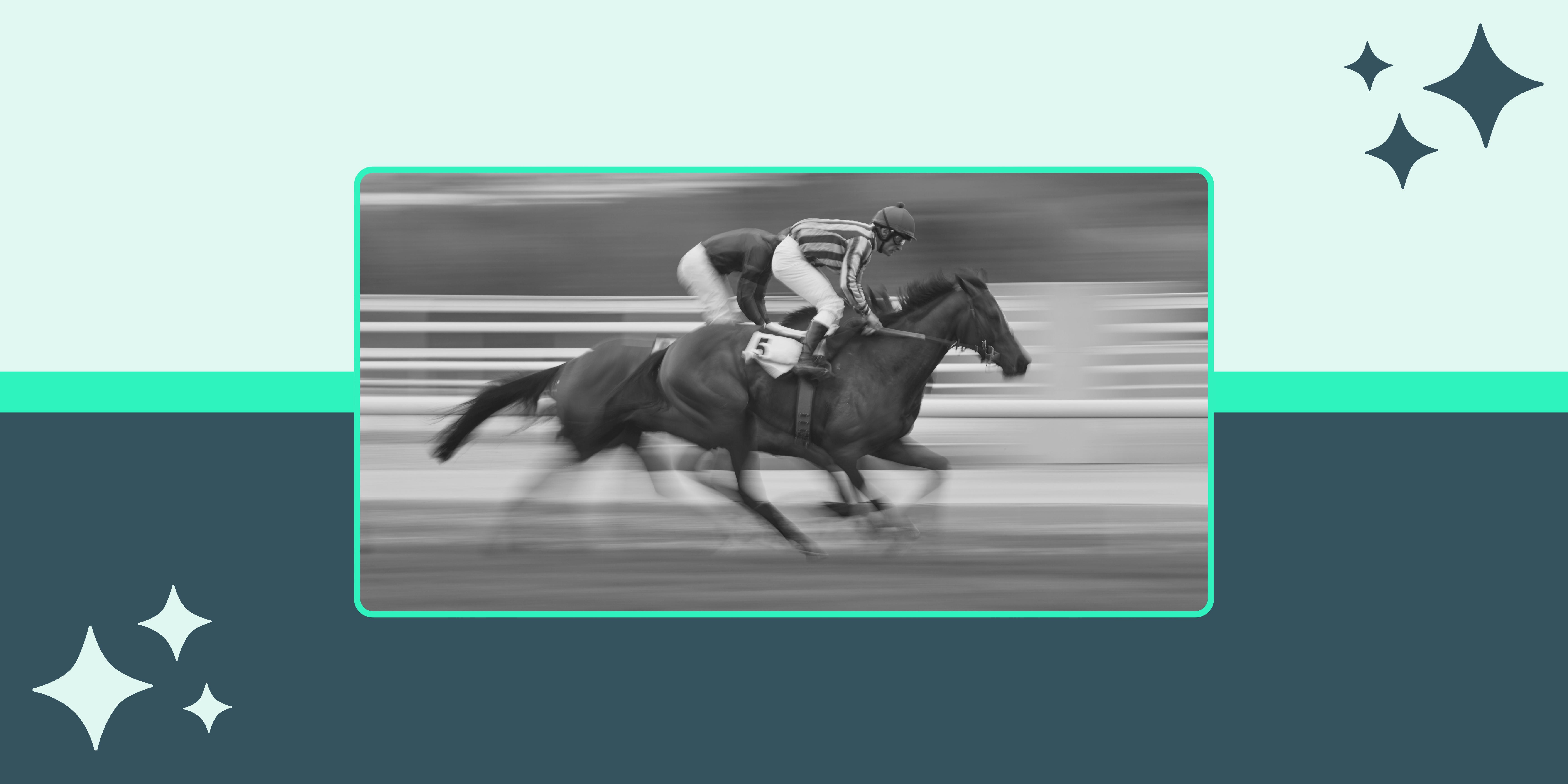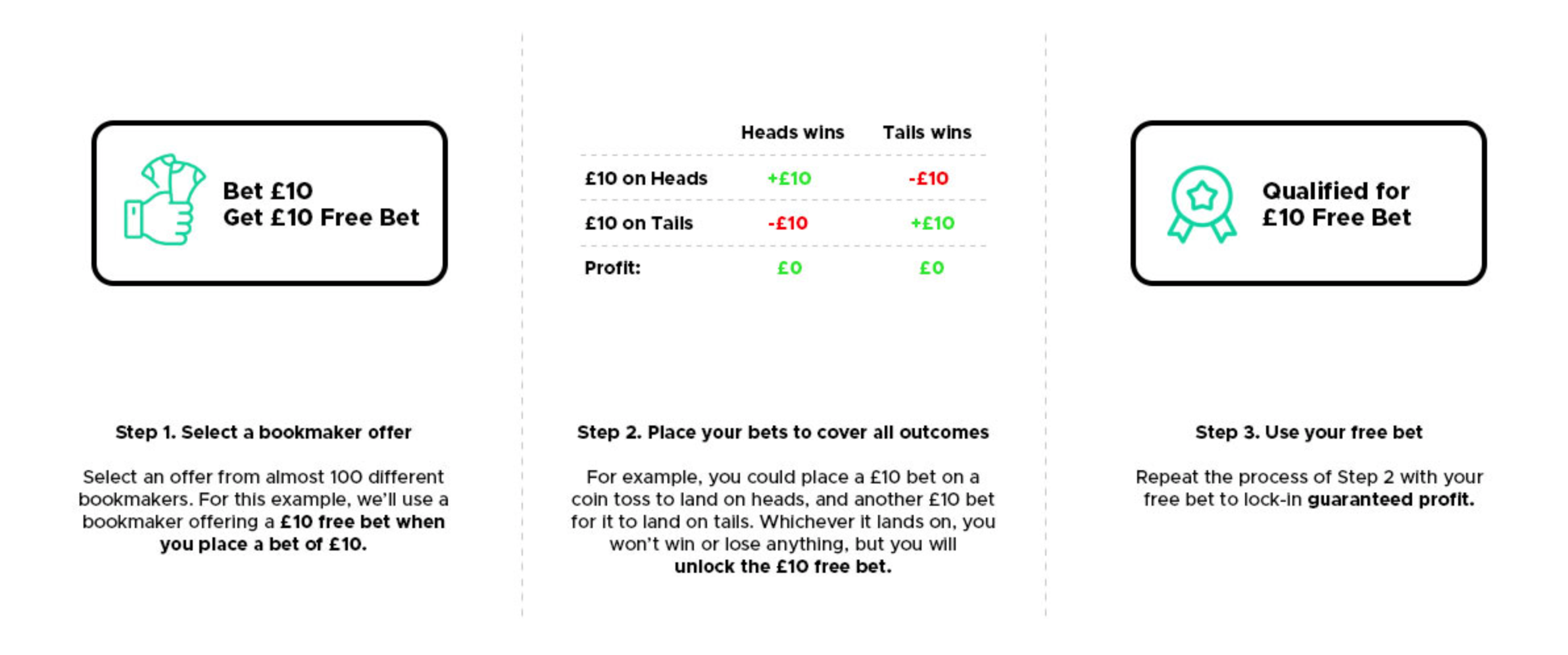How Are Betting Odds Determined? A Guide
You’ve probably come across, or at least heard of, bookmaker’s odds.
Predominantly, bookies list sports, but they’re also happy to tackle politics, especially in election years, and a surprisingly diverse array of more obscure activities, including cheese rolling, celebrity deaths, and even the end of the world.
But how do bookies come up with their odds to begin with, and how do they know if they’re right?
We’ve investigated all the work that goes into calculating betting odds to give you a behind the scenes rundown of the whole process.
What Are Betting Odds?
Betting odds are, in essence, a representation of the probability of something happening. In the UK, it’s normal for betting odds to be expressed as a fraction, which indicates the ratio of winnings to stake for a bettor.
For example, if someone makes a bet at odds of 3/1, they will win £3 for every £1 staked.
The less likely an outcome is considered to be, the higher the odds will be - and so the more you will win if you’ve placed a bet on that outcome.
Conversely, the more likely an outcome, the lower the odds will be, and the smaller the amount you’ll win.
Bookies make a lot of money, and they invest a good chunk of that in software and staff to determine their odds.
For this reason, the odds offered by bookies are frequently considered to be a good indication of the probability of something happening.
Bookie odds are often cited in relation to major events such as ‘Will there be an election in July?’ as strong evidence in favour of or against such an outcome.
But how do bookies know how likely something is? And can you rely on their odds to predict what will really happen?
Types Of Betting Odds
There are three main types of betting odds, all of which can be somewhat confusing if you’re not already familiar with them.
Fractional
Example: 4/1 indicates a 20% probability of an event occurring
As mentioned above, odds expressed in the fractional format tell you the ratio of your winnings to your stake, the first number (4 in the example above) representing your possible winnings, and the second number (1 in the example above) your stake.
This is an easy enough principle, but the mental maths required can become quite complex if you want to compare odds between competitors, or between bookies. While an experienced bettor will instinctively know that odds of 10/4 are higher than odds of 19/10, people less familiar with the format might need a pen and paper to reach the same conclusion.
Decimal
Example: 5.0 indicates a 20% probability of an event occurring
Decimal odds are sometimes called ‘European odds’, but they’re also becoming increasingly popular in the UK. Decimal odds are much easier for the layperson to understand, as all they need to know is that a higher number indicates higher odds.
To work out the expected payout of a bet, including the return of your original stake, you simply multiply the amount staked by the odds. So if you place a £1 bet at odds of 5.0, your total payout if the bet won would be £5 (your original £1 stake plus £4 in winnings).
Decimal odds make it much easier to compare odds between competitors, bookies and exchanges, and for this reason decimal odds are preferred by matched bettors and advantage bettors, who need to be able to swiftly compare and match odds to make their profits.
American (also known as Moneyline odds)
Example: +400 indicates a 20% probability of an event occurring
If you’re based in the UK, you probably won’t encounter American odds, but it can still be useful to understand them. American odds can either be positive or negative, and mean slightly different things in each case.
For positive odds, the figure refers to the amount you would win if you bet $100. So odds of +400 would indicate that you would win $400 if you bet $100. Positive odds are used for outcomes that are considered to be less likely than not to occur - i.e. positive odds indicate underdogs and outsiders.
For negative odds, the figure refers to the amount you need to risk in order to win $100. Odds of -400, therefore, would indicate that you need to risk $400 of your own money in order to win $100. Negative odds are used for outcomes that are more likely than not to happen - i.e. negative odds indicate the favourites.
How Bookies Assess The Likelihood Of Outcomes

Bookies (assisted by a lot of complicated software) consider a large number of factors when setting their odds, but we’ve listed the most significant below.
Performance
Unsurprisingly, the recent performance of a player, team or competitor is one of the most important considerations when assessing whether they’re likely to win an upcoming game or race. If it’s clear that a strong player is on form, their chances of winning are higher, and a bookie will set lower odds on their victory.
Player injuries or suspensions
If a star member of a particular team is injured or suspended from play, it stands to reason that the team’s chances of success are compromised. Similarly, if it’s known that an otherwise highly rated individual player has been struggling with injury lately (e.g. Novak Djokovic, who had knee surgery shortly before Wimbledon in 2024), it’s likely that the odds offered for a win would increase.
Historical data
It’s fairly rare for any given pair of teams or players never to have played each other before, which means that bookies can look at the statistics for their previous matchups to see who’s more likely to come out the victor.
This can be especially useful in situations where an overall weaker player has a history of doing well against a generally strong player, perhaps due to their style of play, and allows the bookie to adjust their odds accordingly.
Environmental factors
One of the best known environmental factors is the ‘home advantage’, which gives a team or player in their home ground or court a significant leg up. As well as the psychological boost of having the crowd on their side, the reduction in travel time can mean the home players are better rested, further increasing their chances. Another major environmental factor is, of course, weather, which may impact one competitor more than another.
How And Why Bookies Adjust Odds Beyond Probability
The actual likelihood of something happening isn’t the only thing that bookies consider when setting their odds, however. A bookie doesn’t exist to predict the outcome of events, but to make money, and manipulating the odds is one of the chief ways they achieve this.
For example, a fair coin toss would have a 50/50 chance of falling on either heads or tails, and of course a 100% chance that one of the two outcomes will occur.
‘Fair odds’ would mean offering odds of 2.0 in decimal format on either outcome. If the same number of people bet on either side of the coin toss, a bookie would pay out exactly the same amount that they had taken in bets in the first place.
To make their profit, a bookie will add on a certain percentage, known as the ‘overround’. So instead of odds of 2.0 on both heads and tails, you might have 1.9, equal to 52.63%, making a total of 105.26%. That extra 5.26% is the bookie’s overround.
As well as this, bookies will adjust odds based on the betting trends of the public, in order to balance out the amount that’s being bet on either side of an event.
For example, if the favourite team in a match is seeing too much action, a bookie might make the odds on their opponent more favourable.
This encourages punters to bet on the underdog, and helps to ensure that the bookie makes their profit regardless of the outcome.
Starting Price In Horse Racing

Horse racing (and greyhound racing), however, works somewhat differently. Although odds are generated and adjusted prior to the start of a race according to the mechanism above, in horse racing there is also the concept of the Starting Price, or SP, which bettors can choose to bet at instead.
The SP is calculated according to the following process set out by the Starting Price Regulatory Commission:
‘For each horse in a race the prices on offer by all bookmakers in the sample are ordered into a list from longest to shortest.
The list is then divided into two equal halves and the SP is the shortest odds available in the half containing the longest odds.
The SP or a longer price will have been offered by at least half the bookmakers in the sample.’
Source: SPRC Rules and Regulations
The aim of this process is to make the SP odds a reflection of the prevailing odds at the start of the price, on the assumption that these odds will roughly be fair.
How Reliable Are Betting Odds?
Bookmakers are often seen as reliable predictors of how events will turn out. When there’s an election coming up, for example, it’s not at all uncommon to see people citing bookie odds as evidence in favour of a certain party’s success.
Of course, the work that bookies do to assess the likelihood of any particular event occurring does mean they probably have solid, empirical data supporting the odds they’re offering, which may not have been available to the average punter.
But it’s important to bear in mind that this isn’t the only thing influencing their odds.
Because a bookie’s prime aim is to guarantee their profits, not to accurately predict the outcome of an event, their odds aren’t necessarily going to be a true reflection of the real probability of something happening.
Ways To Take Advantage Of Betting Odds
There are a number of ways bettors can take advantage of favourable odds from bookies to improve their chances of profiting on a bet.
Matched Betting
Matched Betting is a strategy that allows you to take advantage of the many offers bookmakers run to encourage new and existing customers to bet with them.
‘Matching’ a bet means that you bet both for and against the outcome of an event, using odds matching software to find odds that are as close as possible.
For example, you might bet that Manchester City win their next match, placing this as a ‘back’ bet with a bookmaker.
You would then match that bet by also betting that Manchester City don’t win their next match, placing this as a ‘lay’ (against) bet with a betting exchange, such as Matchbook.
This covers all possible outcomes of that event (because a draw would also count as Manchester City not winning the match), and ensures that you don’t lose any money.
Bookies are constantly advertising extremely generous offers to new customers who sign up to their services, which is how we can use this technique to make money.
A bookie might offer you a £20 free bet if you sign up with them and place a £10 bet with your own money, for example.
By matching your first bet, you break even - and you can then match the second (free) bet as well, and make your profit.

Meanwhile, arbitrage betting, advantage betting and value betting are all strategies employed by canny bettors to gain a statistical advantage over the bookies - but it’s worth noting that advantage betting and value betting aren’t risk free, while arbitrage betting is detectable by the bookies and likely to get you gubbed.
If you’re not an experienced bettor, it’s best to start off with Matched Betting, which will make you guaranteed profits with no risk at all.
Summary
Odds are complex, and affected by a range of influences and circumstances, but the main two factors that determine betting odds are probability and profit.
It’s particularly important to be aware of the role that profit has in bookies’ odds making, as this can skew odds significantly and give a false impression of the likelihood of a particular outcome.
There are a few different ways for the public to take advantage of the ways betting odds work, including Matched Betting. To get started, try out our free trial to make your first profits from Matched Betting today.
Updated: 27 Dec 2024
The Author
Stephanie is a published author and, having taken up Matched Betting fairly recently, she knows exactly how beginners feel when they first start Matched Betting. She loves breaking down complex subjects in straightforward terms to make them accessible to newcomers, and to speed them on their way to making their first profits.

